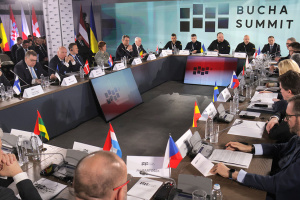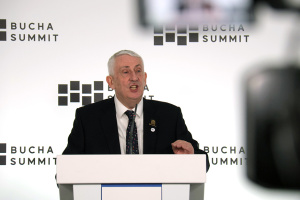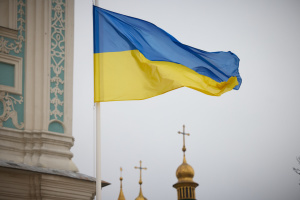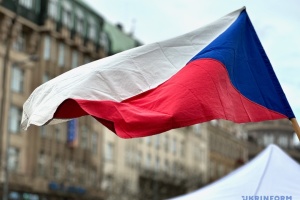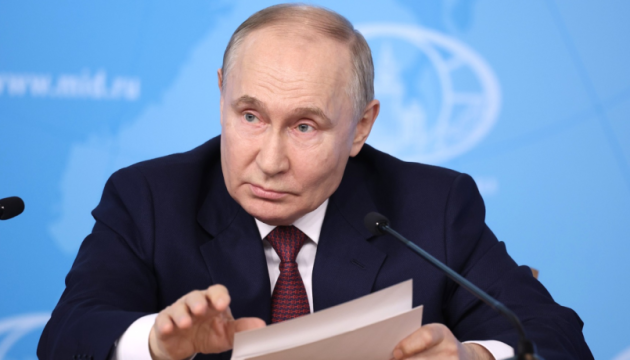
FAILED BLUFF: how Putin tried to disrupt the Global Peace Summit
To split the West
In his speech, Putin traditionally shifted responsibility for the war and the international security crisis to the West, but at the same time, he tried to provoke contradictions within the Euro-Atlantic community. Putin declared the United States to be a “real threat” to Europe. It is the U.S. that forces the Europeans to mass-produce artillery shells for Ukraine, which “no one will need when the conflict ends,” instead of developing their own high-tech weapons. And in general, according to Putin, the U.S. brutally uses European leaders in their interests, and they “are more afraid of falling out of favour with Washington than of losing the trust of their citizens.” Moscow has been spreading this anti-American narrative to European audiences for many years in a row. And the Kremlin considers the strengthening of right-wing populist movements in the European Parliament as its success, which should be further developed.
In addition, Putin expressed concerns about the economic prospects of the West. Firstly, the U.S. not only “holds back the development” of the Global South, but also “squeezes the juice” out of its satellites. And secondly, the freezing of Russian assets and currency reserves allegedly undermined confidence in the Western financial system in general and European banks in particular, because “anyone can be next in line for expropriation by the U.S. and the West.” Of course, Putin did not mention his experience of ‘’expropriation’’ of Western businesses in the Russian Federation and plundering in the occupied territories of Ukraine. However, linking sanctions against the Russian Federation and financial support for Ukraine with the economic difficulties of Western countries is an overarching task that the Kremlin has been working on since the beginning of the war.
Putin did not forget to mention the “true interests of the American people,” on which Washington allegedly placed the burden of messianism. The U.S. leadership seeks to “spread its ideology to the whole world to preserve its imperial status,” which leads to the decline and degradation of the country. Of course, accusations of imperialism from Putin’s mouth are difficult to perceive without irony, but it was a clear signal to Trump’s audience (and not only), which is prone to isolationism in matters of international politics.
Bluff and blackmail
Putin paid much more attention to Ukraine, repeating all the main ideologemes. “The West provoked the Ukrainian crisis,” “provocation in Buch,” “Donbass was bombed for 8 years,” “Kyiv broke the Minsk agreements” — it seems that the Kremlin will never get tired of this broken record. Unexpectedly, Putin talked a lot about the “illegitimacy” of the executive power in Ukraine, which was allegedly “usurped”, after the “cancellation” of presidential elections this year. Predictably, Putin did not mention that holding elections in conditions of full-scale Russian aggression and daily missile terror is, in principle, impossible. One of Putin’s goals and Moscow’s main priorities was to delegitimize President Zelensky in the international community’s eyes on the eve of the Global Peace Summit.
However, the greatest resonance in the world was caused by Putin’s statements, which were interpreted by some commentators as a “negotiating position”. Putin emphasized that the residents of Donetsk, Luhansk, Kherson, and Zaporizhzhia regions allegedly “expressed their position during referendums” as a result of which four regions of Ukraine allegedly ‘’became part of the Russian Federation,” and therefore “there can be no talk on violation of our [Russian] state unity.” Thus, Putin made claims not only for the preservation of the temporarily occupied territories, but also for the territories of the mentioned regions, controlled by Ukraine. As evidenced by the “realities on the ground,” which the Kremlin likes to mention, the Russian army is incapable to perform this task; and Kyiv will never surrender its territories to the aggressor. But in this case, it was not about capabilities but about ambitions. In this way, Moscow tried to de-actualize the agenda of the Global Peace Summit: What is the point of talking about peace if Putin wants war and puts forward completely unacceptable conditions?
The main message of Putin’s speech was wrapped in lengthy reflections on the progress of the negotiation process, which has been ongoing since 2014, and also on the contacts that have taken place since the beginning of the full-scale invasion. “Since the first days, we have again put forward options for a diplomatic solution to the crisis. These are negotiations in Belarus, Turkey, and the withdrawal of troops from Kyiv to create conditions for signing the Istanbul Agreements, which, in principle, were agreed upon by all,” Putin mentioned. Of course, this version of the events of 2022 has little to do with reality. The Kremlin’s “peace proposals” were an invitation to surrender or an attempt to buy time for an operational pause after the failure of Putin’s blitzkrieg. However, the rebroadcast of these fantasies on the eve of the Global Peace Summit had different goals. Firstly, in this way, Putin once again tried to convince the international community that Moscow was supposedly always open to negotiations. And secondly, that is more important, Putin announced a demand to the Global Peace Summit participants: if you want positive developments in this issue, you have to speak with Moscow.
Kremlin’s failure
On the eve of the Global Peace Summit, Moscow did everything to ensure that this event did not take place or turned out to be ineffective. However, the Kremlin’s plans once again did not come true. “The communiqué that was adopted at the Summit fully reflects our intentions and remains open for signature by every country that respects the UN Charter,” Zelensky said in a statement following the event. The Summit in Bürgenstock became an important step on the way to the end of the war, but the direction of this movement was not determined by Russia but by Ukraine.
According to Zelensky, the next step will be the development of a detailed settlement plan, which, after approval, will be handed over to the representatives of the Russian Federation. The President said that negotiations with countries that are ready to host the Second Peace Summit have already begun. “You ask, What will happen to the Russian Federation at the second summit? This will prove that they want peace. Their presence there will indicate that they have decided to end the war. I would rather not play with words: did they decide or were they forced by the world… We are fighting for forced by the world, but the main thing for us is the result. The result is the end of the war,” Zelensky said.
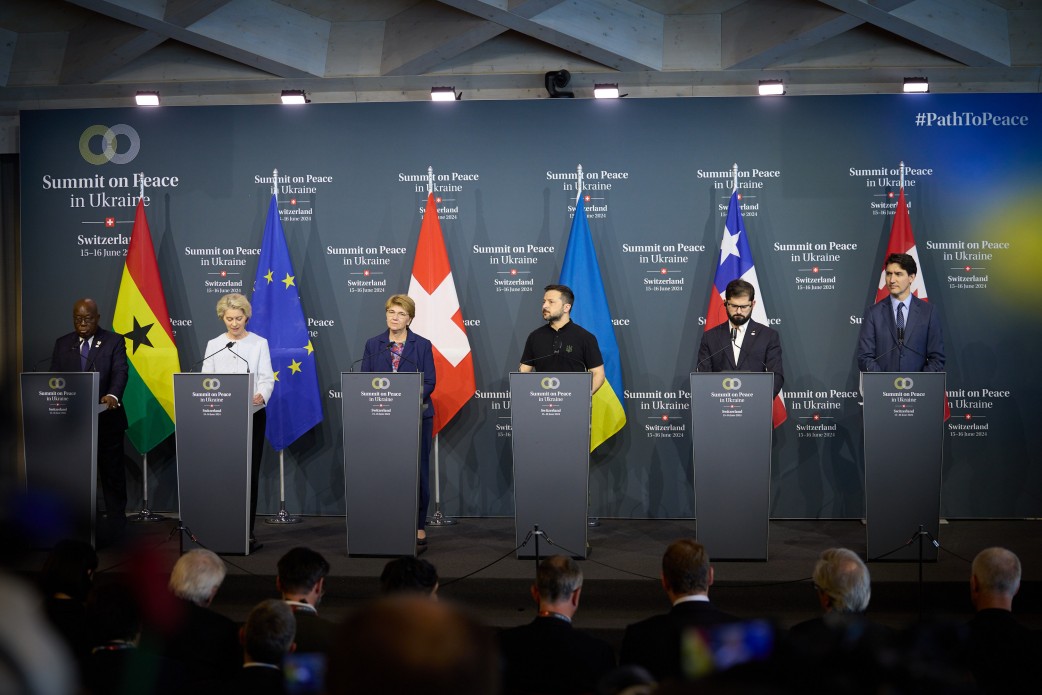
Currently, Russian propaganda is doing everything to convince Ukrainians and the world community that Kyiv is delaying the start of “meaningful negotiations” or even abandoning the very idea of a peaceful settlement. But it is well known that only capitulation can be quick, but achieving just and sustainable peace requires consolidated and long-term efforts. And the Global Peace Summit became another proof that these efforts of Ukrainian diplomacy are yielding results.
Center for Strategic Communication and Information Security


